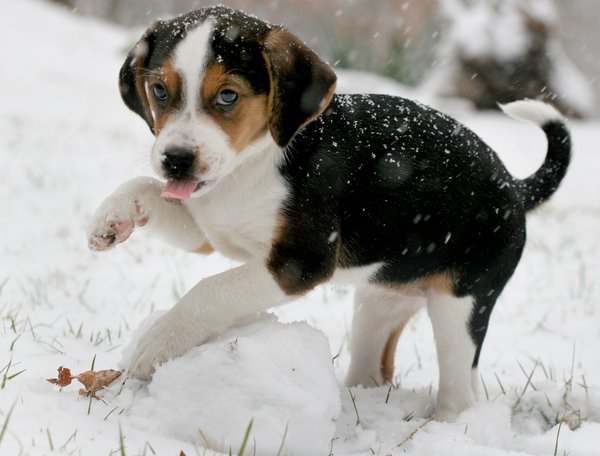Updated: Wednesday, Jan. 3, 2018
At a time when Americans are spending an estimated $58.5 billion shopping for their four-legged children, it seems superfluous to give pet owners tips to protect animals from the cold.
But many dog-people don’t know that caring for an animal in the winter takes more than giving it a warm bed and less time spent outdoors – though that’s important.
So we’ve compiled a list of tips to keep your fur family cozy and safe this winter.
KEEP PETS INDOORS
Though most would agree it's cruel to leave animals outside when it’s freezing, they may not know that it’s a crime in Philadelphia.
Last winter, the city passed an ordinance prohibiting dog owners from leaving their animals outside any time the city declares a Code Blue, which is when temperatures drop to around 20 degrees Fahrenheit, as well as a Code Red (for extreme heat) and Code Gray (for extreme precipitation).
- TIPS FOR KEEPING WATER BOWLS FROM FREEZING: Consider using a heated water bowl to keep your pet's water from freezing or put a floating ball in the bowl, which will help to stop ice forming across the entire surface.
Perpetrators will be fined up to $500.
And while the city ordinance doesn't apply to felines, pet advocates urge cat owners to protect their animals as well.
A good rule of thumb is if it’s too cold outside for you, it’s too cold for your pet, according to VCA Animal Hospitals, which offer information on detecting signs of frostbite and treatment methods.
CONSIDER A SWEATER AND LET THEIR COATS GROW
While you might think their fur coats are enough to keep them warm, the ASPCA recommends putting a sweater on your pup, particularly dogs that are sick or old. Pets with arthritis need special care in the cold, since cold temperatures can worsen joint pain.
Pets with diabetes, heart disease, endocrine disorders, or kidney disease can have greater difficulty regulating their body temperature and are also at increased risk, the ASPCA said.
They also recommend against cutting your pet's fur short during the winter.
GIVE YOUR DOG MORE FOOD
Just like humans, when a dog gets cold, it uses its own energy supply to keep warm. According to the Washington State University College of Veterinary Medicine, you can give 10 to 15 percent more food to your dog to help provide extra calories.
WIPE THE PAWS
Salt rock and antifreeze can be dangerous and painful for pets. Animals can ingest antifreeze while licking their footpads, and salt can sting chapped paws. Pet experts advise wiping off paws with a warm and wet towel.

